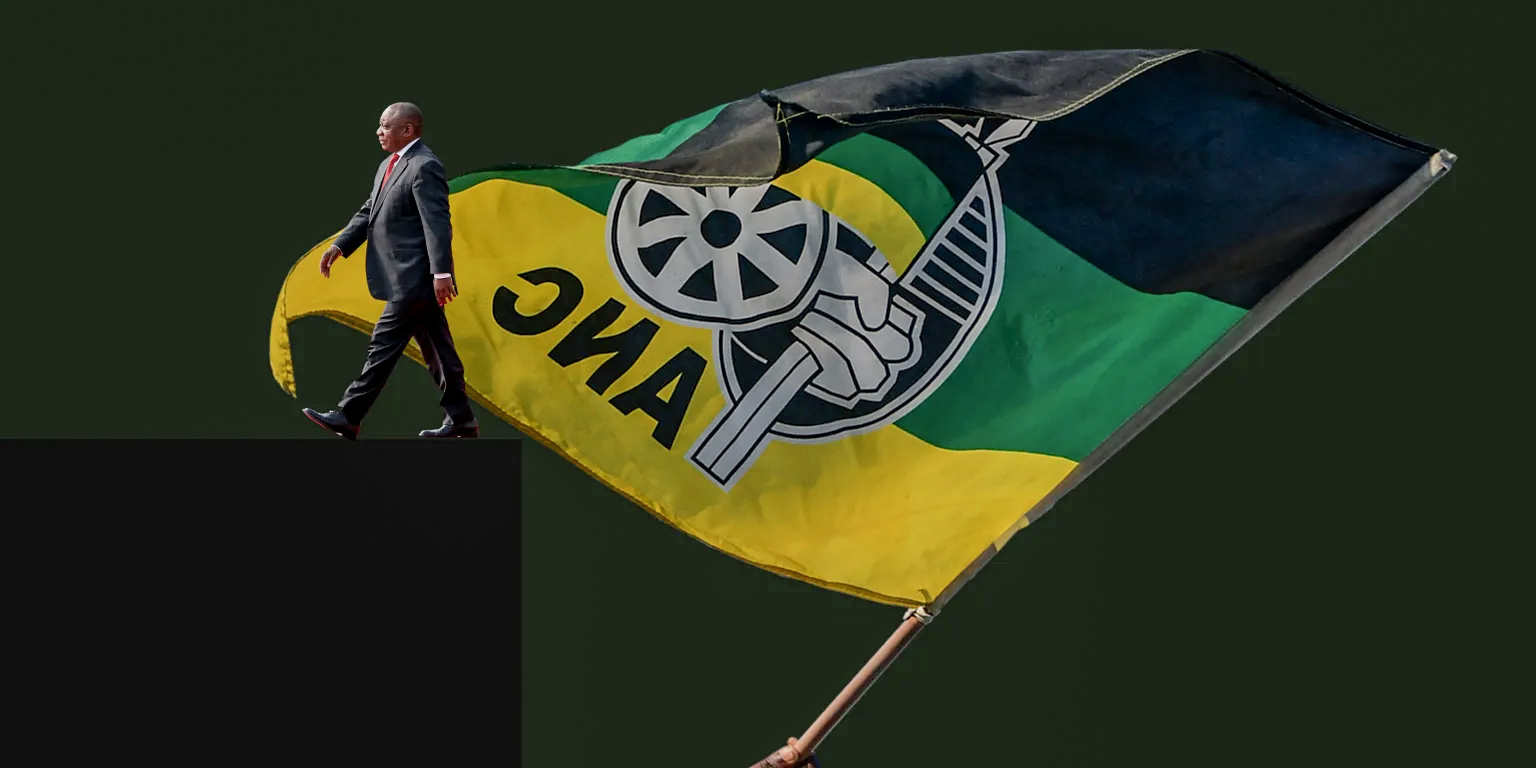The six ANC regions in Gauteng have offered their explanations for the party’s decline from 50% in the 2019 provincial elections to just 34.7% in the 2024 poll.
A report submitted to the party’s National Working Committee (NWC) by the ANC’s Ekurhuleni regional coordinator, Jongizizwe Dlabathi, dated 8 September 2024, outlined the limitations of the party’s election campaign.
While the formation of former president Jacob Zuma’s uMkhonto Wesizwe (MK) party remains a sore point, the ANC’s Ekurhuleni structures acknowledged that the ANC’s collaboration with the EFF had damaged its standing with East Rand communities.
In the run-up to the elections, regional ANC members complained that the collaboration would be detrimental to the party’s electoral chances, but the two parties continue to collaborate in the council, although the ANC strengthened its position this year by taking the mayoralty and replacing the EFF’s Nkululeko Dunga with an ANC finance MMC.
Read more: EFF’s Nkululeko Dunga gets chop as finance MMC in budget-battered Ekurhuleni
“The ANC and EFF collaboration that saw EFF taking strategic portfolios in council weakened most of the ANC-led wards when it came to responding to critical and basic service delivery challenges. This resulted into [sic] an all-time low service delivery, wherein the ANC is paying the price for it.
“The formation of the MK party had a negative impact in [sic] the campaign, which translated to several comrades joining the newly-formed MK party including former councillors, current and former branch executive committee (BEC) members,” wrote Dlabathi in the report.
Other factors included the lack of employment opportunities and insufficient participation by ward councillors in some branches.
The report said factional battles in some branches and improper behaviour by the ANC hampered the region’s campaign.
“The cost of living is affecting our branch members and the entire community. High inflation, high electricity costs and the cost of transport and food are destroying the hope of the people. [The] inability of the ANC and BEC to engage sectoral members of our communities [is] seen as another factor,” read the report.
The 2024 campaign falls flat
As for the actual campaigning for the general elections, the ANC’s Ekurhuleni branches were said to have failed to provide answers to the issues of load shedding, unpaved roads and water shortages.
The region did not have enough volunteers, and ward councillors were awol when it was time to campaign.
“Loudhailing for voter registration was found not to have been massively and effectively undertaken. Our voter registration campaign was not aggressively appealing to young people at this stage. Of note is that voter registration targets were not achieved,” read the report.
The ANC garnered only 36.21% of the national vote in Ekurhuleni in 2024 compared with 55.19% in the 2019 elections. In 2024 MK replaced the EFF as the third-largest party in the region.
The Ekurhuleni ANC has also experienced a decline in membership. As of February, the total membership in good standing was 11,965 compared with the 12,454 previously reported.
The report stated that around 10,949 memberships in Ekurhuleni had expired and more than 200 members were on probation, although it did not offer a timeframe.
It said that the membership system had recently been offline, making it difficult to provide an updated membership report.
“Considering the rapidly declining membership, the Regional Task Team resolved to undertake a region-wide imvuselelo and recruitment drive to be coordinated by the Organising and Building Subcommittee,” said the report.
City of Joburg
Speaking on the sidelines of the NWC meeting with the ANC Gauteng provincial executive on Monday, at the Birchwood Hotel & OR Tambo Conference Centre in Boksburg, ANC Secretary-General Fikile Mbalula highlighted the issues raised by the Johannesburg region.
Mbalula met the regional leadership on Sunday and was told of the constraints they had faced throughout the election campaign.
“What comrades were mostly complaining about is governance, electricity, power cuts, the question of electricity infrastructure vandalism, which [has] affected communities for five years, [and] abandoned buildings which have become a manifest [sic] for crime … especially in the area of Johannesburg. Internal ANC squabbles — factionalism is a big problem where we did not pull through as a unit and force.”
Like the Ekurhuleni region, Johannesburg was also said to have experienced an exodus of its members and those who clandestinely campaigned for MK.
“And of course the Zuma party, which has come full force and won some of the wards, especially in areas in Johannesburg, hostels. These are issues which people in the ANC have raised that there are people who have left and have gone to the Zuma party and some of them who were working for the Zuma party while being in the ANC,” he said.
Read more: ANC haemorrhaged votes because people lost confidence in it, NEC to hear
City of Tshwane
Mbalula also explained the ANC’s stance on the City of Tshwane.
“In coalitions, we are not going to join anything that does not serve the ANC and the interest of the people any longer. We will join any coalition and work with everybody as long as the people of SA will benefit from stability.
“We are tired of having mayors changed week in and out. The ANC, working with the province and nationally, has reflected on these matters. We are one year from elections and the municipalities will deliver to our constituencies,” Mbalula said, referring to the 2026 local government elections.
The ANC will table a motion of no-confidence against Tshwane Mayor Cilliers Brink. It is expected to be supported by ActionSA, EFF and Cope, which account for the majority of seats in the council.
The motion was initially expected to be presented on 30 August, but has since been temporarily withdrawn. The City of Tshwane executive had approached the Pretoria Division of the High Court in Gauteng to challenge the legality of the motion, citing procedural irregularities. DM





